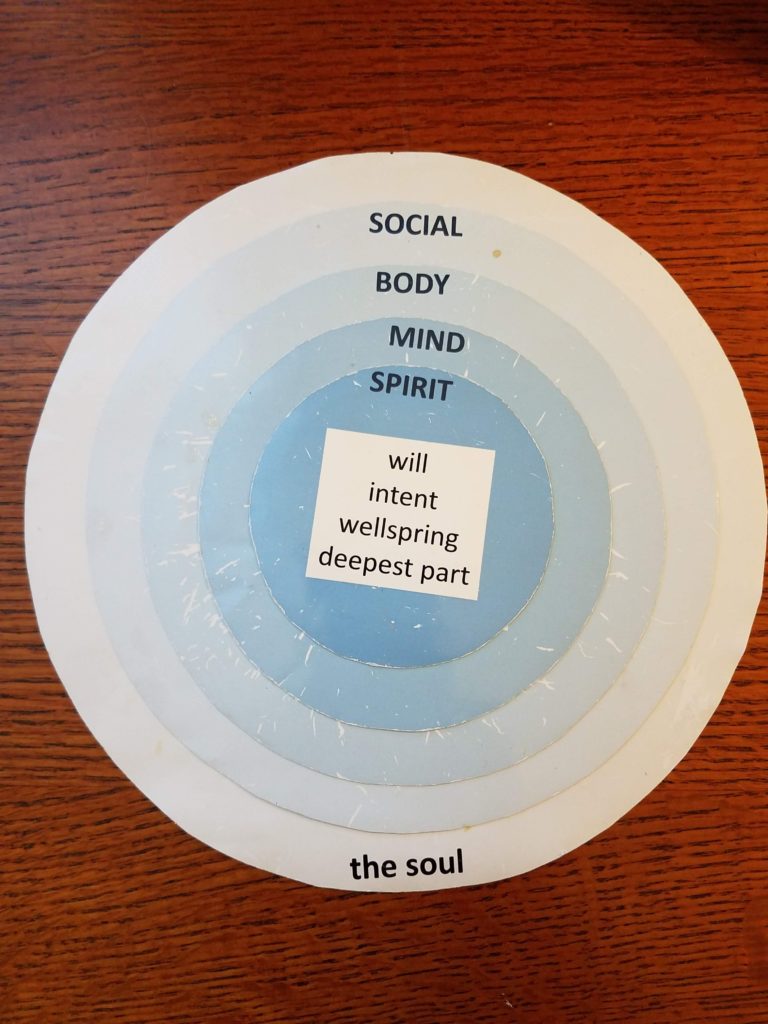It was on the third day of an 8-day overseas mission trip that I found myself losing patience. I managed to make it through the jet lag of a six-hour time difference, the money exchange, a broken-down van, meeting new people in a new culture, and beginning the ministry portion of our trip, before my overwhelming exhaustion made itself evident in my behavior. I found myself feeling irritable, overly critical, easily offended, and misunderstood. I reacted to issues that I normally would have let slide. I responded in anger to well-meaning family members.

As my sister-in-law and I were getting ready for bed later that night, I mused, “Wow, today was not great. I got into two arguments today, and I just cannot believe I said those things.” She nodded, agreeing that she had noticed my attitude, and asked, “Are you talking about what you said to Nathan earlier?”
“No,” I laughed, flabbergasted at myself, “I wasn’t even counting that whole thing. Make that three arguments.” Clearly, it was time for me to go to bed and start a new day.
By the time I woke up the next morning, life seemed more manageable again.
That’s what exhaustion does to us. It takes us to a place where we no longer feel regulated and integrated. We begin to feel dysregulated and disintegrated: physically, emotionally, spiritually, and even relationally.
- Dysregulation: abnormality or impairment in the regulation of a metabolic, physiological, or psychological process.
- Disintegration: the process of losing cohesion or strength; the process of coming to pieces.
We are not just spiritual beings, or relational beings, or physical beings, or emotional beings, or thinking beings. We are souls, comprised of all of these layers. When one of these areas becomes disintegrated, it tends to affect the other layers as well. For example, if my body is depleted of energy, then my emotions and relationships are affected by the exhaustion as well.

Dallas Willard, author of Renovation of the Heart, developed a holistic model of the soul as being comprised of all the layers of the self. In other words, we are created as integrated beings, a sum of all of our parts. All of these layers affect the others. For instance, if I have a headache, it is my body affected by pain, but I will find myself with less emotional, spiritual, and relational bandwidth as my physical pain takes the majority of my focus.
If I am disintegrated relationally, due to a conflict or abuse, I will probably find that not only my relationship is affected, but my mind is also affected by feelings and thoughts about the hurt I’ve experienced. My body may also be affected, as I find myself crying, or holding muscle tension from the stress of the conflict.
Often in Christian circles, we talk about spirituality as if it is separate from the other three layers. As if bodily issues, or our thoughts/emotions, or our relationships are separate from our spirits. Yet, the Lord created us as physical beings. Jesus was born into a physical world where he suffered physical hurts, he experienced human relationships, and he had thoughts and emotions. Even our new lives in heaven will be lived in glorified bodies. There, we will still be physical. We will eat. We will love. However, in our glorified bodies, we will be fully integrated, with no sin, pain, physical or emotional exhaustion left to disintegrate us.
For now though, in these real, physical bodies that we are blessed to live in, we need to give ourselves and others grace. It is easy to become depleted and disintegrated. We must give ourselves permission to pause and rest, allowing ourselves to renew and recharge. And of course, we can always seek forgiveness for hardships and misunderstandings that were caused when we were feeling dysregulated. Soul care requires caring for the whole self: relationships, body, mind, and spirit.

Pause: Take a deep breath and slowly exhale. Quiet your mind and your heart; then meditate on the verse above, Psalm 107:9.
Renew: As you read this verse, contemplate how the Lord satisfies your longing soul and fills your hungry soul with good things. How does He provide for you in each of the following areas: in your relationships, in your body, in your mind (thoughts and emotions), and in your spirit?
Next: If you have found yourself feeling disintegrated lately, take time to think about which layers of your soul feel affected. Try to enact one form of soul care this week and give yourself the grace and rest you need as you work towards feeling more integrated again.
May your longing soul be filled with the good things God provides… …even rest.
Pause, Renew, Next!
